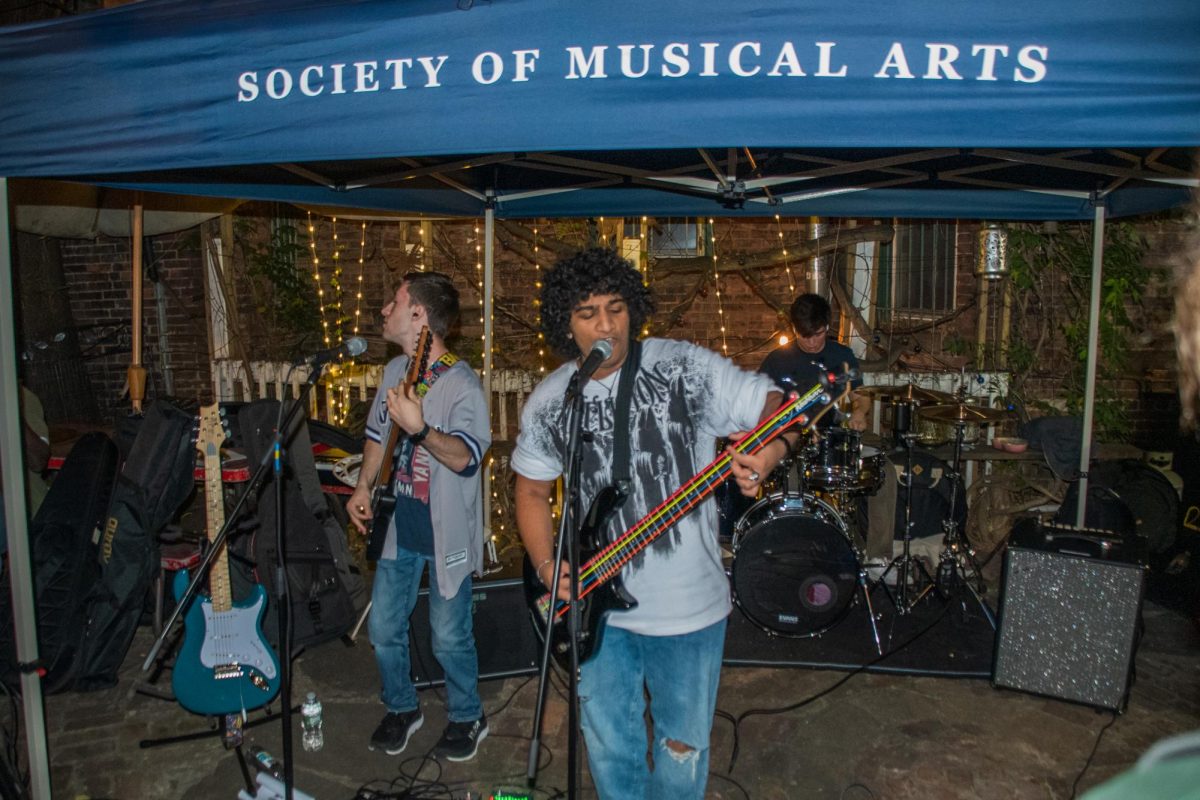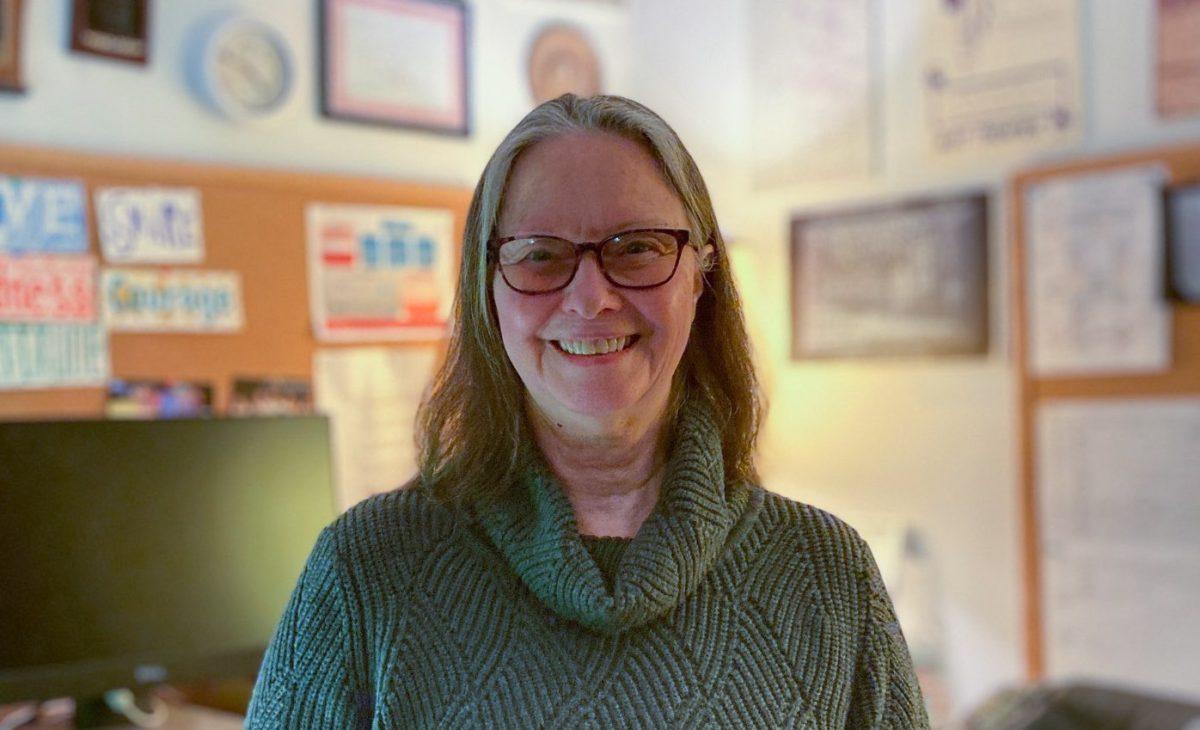“It was the summer of 1974 when I met Bill Gile. We were watching a play that had a mutual friend in the cast. We had a bite to eat before the show. The next day, he fired his assistant and hired me. We got along well. Did I have a vision? Nope — just a job in theatre.”
Back in 1974, NJIT was called the Newark College of Engineering, or NCE, and was strictly a commuter school; “Wheel of Fortune” didn’t exist as a television show, Microsoft was still in the works of becoming a corporation, and “Jaws” had yet to frighten audiences to their cores. When Michèle Rittenhouse entered campus, she bore witness to all these monumental changes in the university’s history and beyond.
Rittenhouse served as the Director of the Theatre Arts and Technology Program — an initiative that she started at NJIT from scratch. She recalled her first interactions with former NCE director Bill Gile, which brought her to the university. This spring marks her last semester as part of the NJIT community.
With Gile during that time, she found many talented individuals at the university to put on one play per semester. Sometimes, they would bring in professionals to work and perform with the students, as there weren’t any courses to formally train students. With NJIT as a commuter-only school at the time, most of their audiences were filled with staff and faculty.
Eventually, Gile retired. “The dean called me into his office, and I thought, ‘Okay, this is it; I’ll have to leave,’” she recollected. “But he said, ‘Michèle, do you want to create a Bachelor of Arts in theatre? And we’ll call it Theatre Arts and Technology?’ and I said, ‘Absolutely.’” By that point, she had already created a capstone course — theatre and technology — which had turned out to be extremely successful.
Creating the major took tremendous effort from Rittenhouse as well as the new hires — it required 25 courses, and NJIT decided to take the same numbered courses offered at Rutgers-Newark to bring each university’s program together, keeping the majors separate. This has become the only successful joint program in the United States.
The number of students taking the major prior to the COVID-19 pandemic and during the pandemic stayed the same, but the numbers are rebuilding as everything is back in-person now. This goes for the music initiative as well — Rittenhouse reaches out to all incoming first-years and transfers interested in music and theatre, giving them information on their desired rehearsals. “We bring the students into a very tight community where we look out after each other,” she said.
Rittenhouse knows that the program is strong. “Our students learn playwriting, performance, history, and technical theatre,” she stated. “Many of our alumni are participating in theatre in their communities; some are actually working in the field, quite successfully, and the others are working in their primary major fields using the skills they learned in theatre and applying them to the design and engineering fields.”
WIth Rutgers-Newark sunsetting its theatre program, Rittenhouse has worked on bringing in technical theatre courses geared towards NJIT students who want to study lighting, sound design, and more subjects like those. “I’m trying to see how to nurture the program and push it forward in a seamless way because there’s so much we’ve built,” she mentioned. She hopes to get those courses launched before she leaves.
Dr. Michael Kerley served as the associate director of the program until last year, when he retired. He came back to direct one last musical, “Urinetown,” this past spring at NJIT. He perceives the program as a department at the university with how much input Rittenhouse has provided towards the initiative since its beginnings.
“I can say without a doubt that she has done all of this — five centuries’ worth of work — at NJIT because of her love for the students, for the talent she brought out of them, and for her recognition that the hard work and community that theatre requires will serve our students for the rest of their lives,” Kerley said. “What an honor to have watched Michèle work!”
Even with the bittersweet feeling her retirement brings to many, Rittenhouse has her future plans laid out in front of her. “I aim to further my career in playwriting, as I have many full-length plays written, some produced, ready to be marketed and published. I plan on working on a number of new pieces,” she said, “and gardening in the mountains.”































